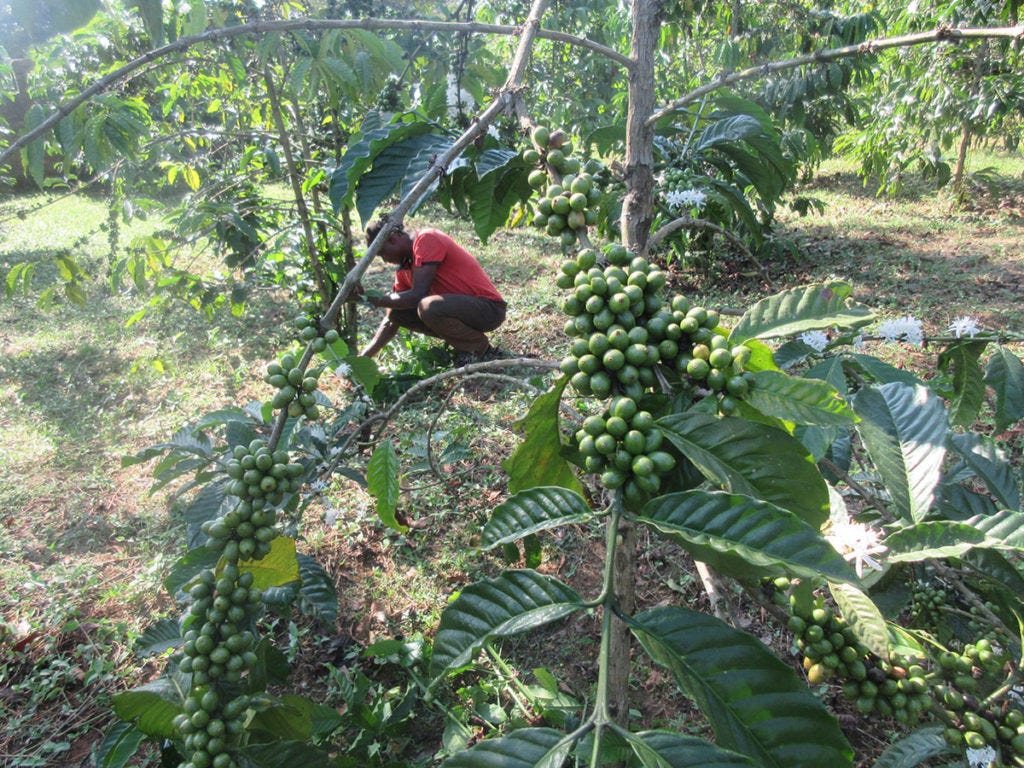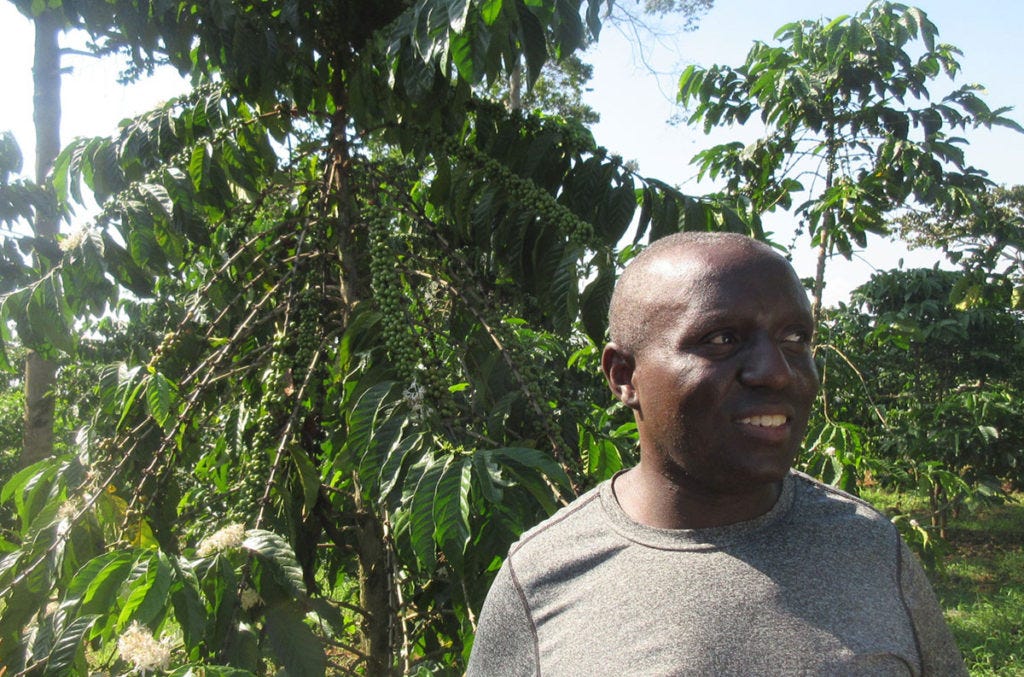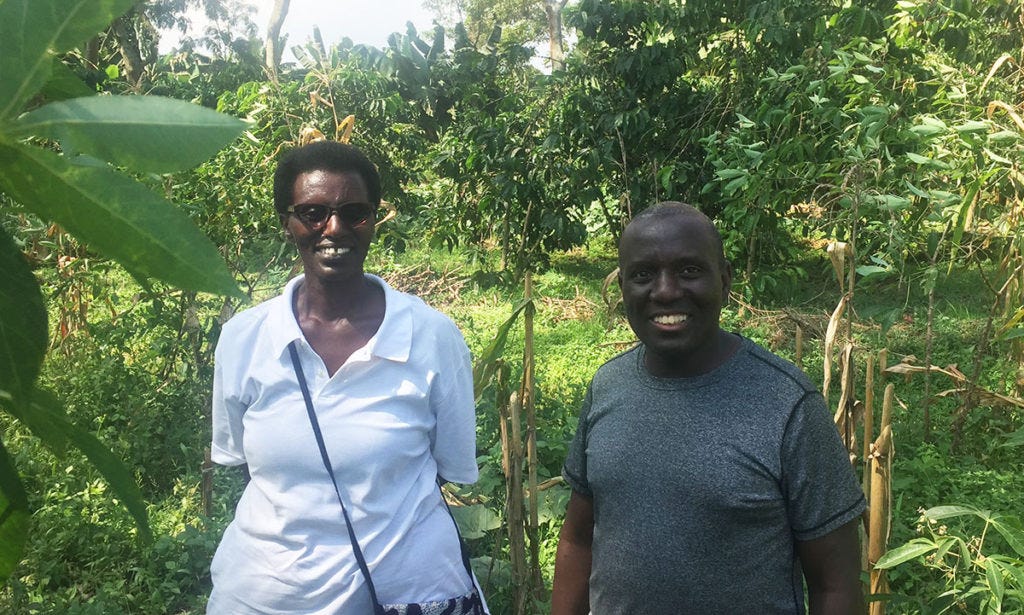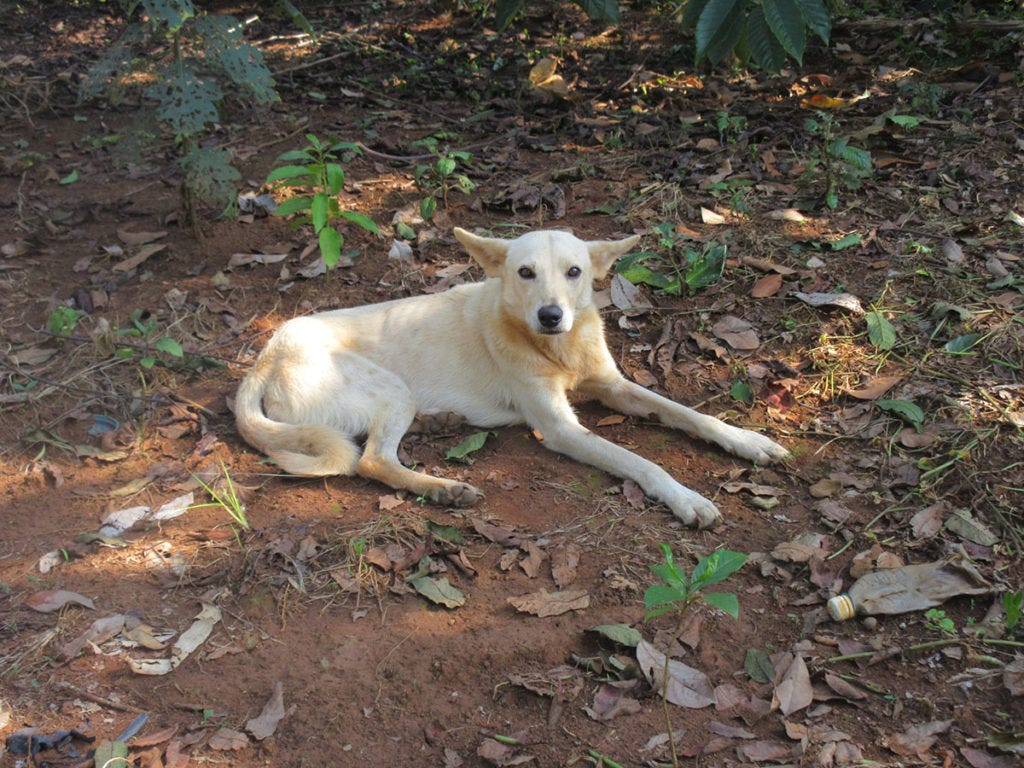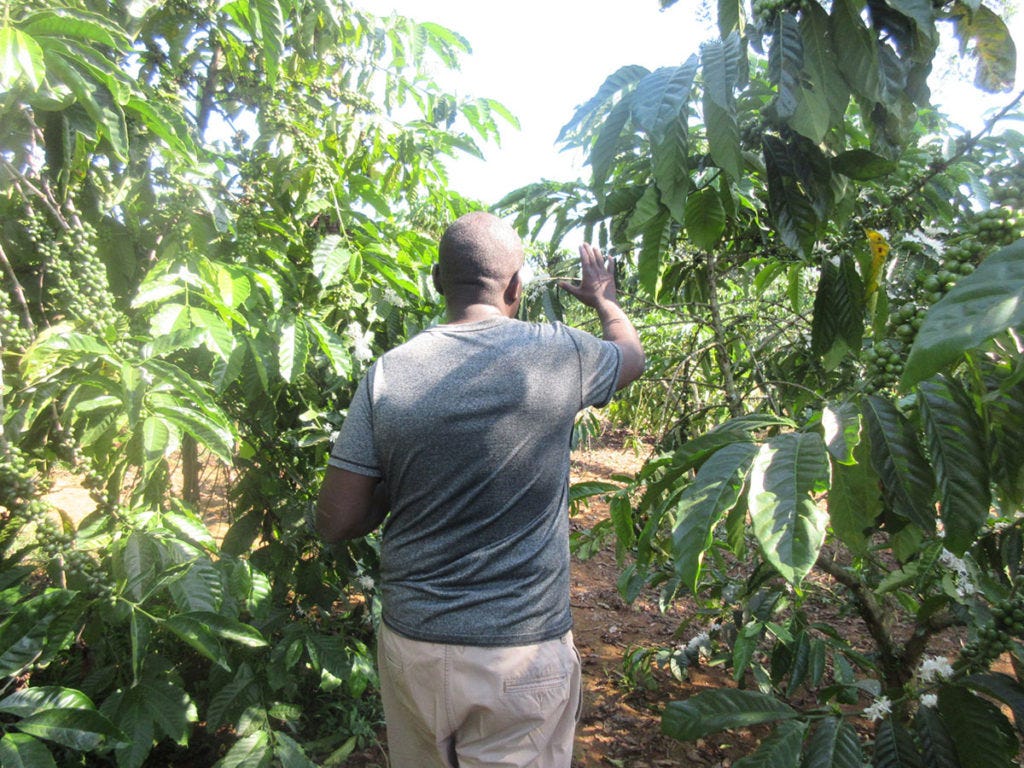Harvard Lawyer Coffee Farmer
I've managed to get myself invited to visit Karoli Ssemogerere's coffee plantations on a hot December afternoon.
We meet up at a supermarket near his home and set off, hoping to tour the two gardens along Entebbe road before dusk. 'Gardens' is a loose term as we're talking about several acres in total.
He appreciates that I kept time. In fact, mentions it more than once. It didn't occur to me to be late.
I'd assumed he's a busy man. Karoli is a practising lawyer, a newspaper columnist, as well as coffee farmer.
He has also invited Justine who is venturing into coffee at her farm in South Western Uganda. She's here to glean some information from Karoli who has been at it for much longer.
She's in the right place as her teacher is friendly, knowledgeable, and willing to share. As we drive, he gives us a brief history of farming on Entebbe road.
"This used to be sugar plantations before they went to Lugazi and Kakira. Sugar was being produced here in Nakigalala. Sugar, tea - all the exports of Uganda were on this road. Lubowa was coffee."
How did he get into Coffee?
"I began from Kitende, in my parents' garden." Harvard Law and Johns Hopkins educated Karoli is son to Dr. Paul Kawanga Ssemogerere who led Uganda's Democratic Party for 25 years.
Having worked on a consultancy project with Uganda Coffee Development Authority (UCDA) about ten years ago, his interest was piqued at the existing opportunities in the coffee industry.
The smaller of the two gardens, the Kitende plot is well watered which ensures that the coffee is able to flower and bear fruit pretty much all year round. Drainage channels have been dug to prevent water logging.
Although she's already planted some coffee, Justine is still a little skeptical. She believes that it is going to be a more labour intensive venture than her other farming activities have been.
"But drying is the only thing that you do," Karoli says, in coffee's defense. He is currently selling his sun-dried coffee to another company to process and sell.
"Even if you're growing matooke (plantains)," he adds, still playing the role of coffee promoter to Justine, "coffee will help you to diversify your income."
He admits that coffee can be labour intensive and that this makes it an expensive venture, especially in the early years.
He has worked out ways to manage his work force more efficiently, encouraging his workers to open bank accounts and combining wage pay as well as salaries to ensure continuity with the job security he offers.
Karoli also gets involved in all the farm work, insisting that he will not require his workers to do anything that he himself is unwilling to do. (He's got insect bites gained while he was picking coffee, to show for it).
"Working alongside the workers also helps with setting direction."
Sustainable Farming
Karoli has included a number of common shade trees on his plantations. He's got Mugavu, Musizi, and others which provide shade at a higher level and additional fertilizer with their fast-rotting little leaves.
He is keen on using organic fertilizer and shunning chemical herbicides which remain in the soil too long.
The family land is also used to grow food for the family, with fruit and vegetables being sold to the neighbouring community as well. This has somewhat helped with security issues as the community is happy to guard what has become a source of food for them too.
For the more isolated coffee garden further down the road, in Nkumba, farm dogs are relied on to keep thieves at bay.
Is Coffee growing worth it?
"The first four years of this decade (2010-2014) were really good. We could just harvest, dry, and sell to a processor. We'd get 2 or 3 million (Ugandan) shillings without putting too much effort."
Having established that he could earn a good income from coffee, Karoli set out to expand his operations which now include more than 150 acres of robusta coffee on the island of Kalangala.
"If the prices of robusta were where they were eight, ten years ago we would be doing so well."
The woes of Robusta
"People are actually drinking robusta but they don't know that they are drinking robusta because it is being marketed as arabica. They mix it. But we the farmers are not getting anything out of those blends. The future of selling single source robusta requires a lot of marketing money behind it."
What would he do differently?
He believes that if he had to do it over again, he would bear in mind that doing coffee production as a business only makes sense when done at scale, and not as a hobby. That way, the farm would earn him enough income and even allow him to quit his other employment if he so chose.
"Most of the farmers are not operating on an economic basis," he says.
Karoli believes that the coffee price will improve. With the investment that has been made in distributing seedlings, he hopes that this will provide incentive for government to do something about stabilizing prices.


